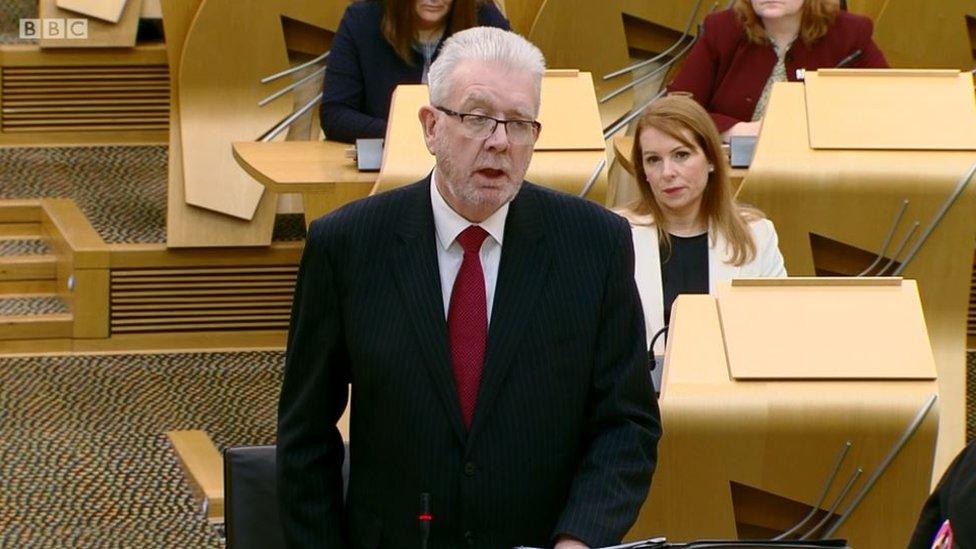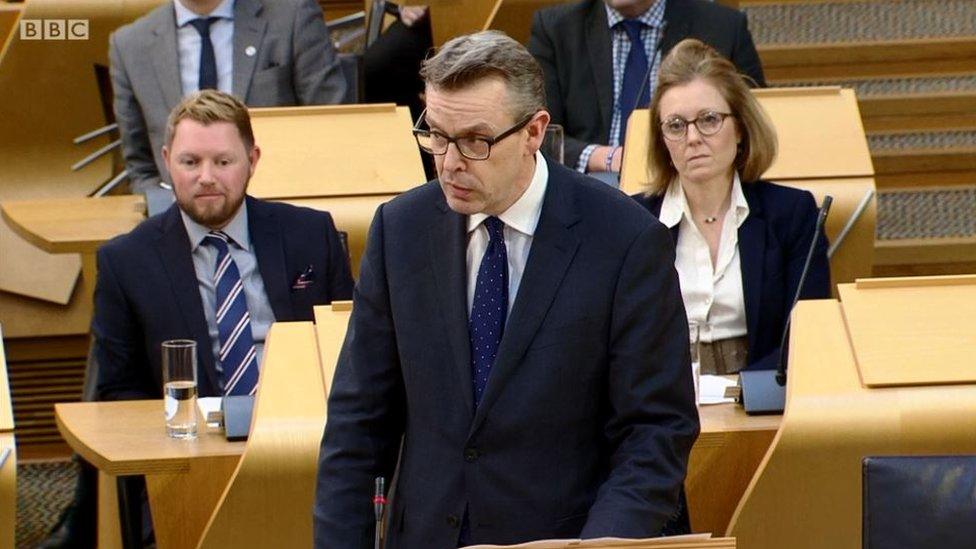Brexit through the looking glass
- Published

Mike Russell was giving MSPs an update on plans for Brexit
'Twas brillig, and the slithy toves
Did gyre and gimble in the wabe:
All mimsy were the borogoves,
And the mome raths outgrabe.
Nonsense? Nonsense? It means just what I choose it to mean, neither more nor less.
In any event, this glorious stanza from Jabberwocky contains, comfortably, as much valid information as much of the discourse over Brexit to date.
But why this return to that great political analyst, Lewis Carroll? Other than the sheer pleasure involved.
Because, chums, Adam Tomkins of the Tories cited the sage in responding to a statement from Mike Russell, the Minister for Mitigating Brexit.
Mr Russell was setting out, in some detail, the latest preparations for exiting the EU, particularly in the event of a no-deal departure.
There would be efforts to maintain the supply of food and medicines, to ease transport problems. Further, the minister noted that Police Scotland were deploying 360 officers onto Brexit duty.
Everything would be done to minimise disruption. But not everything could be done. There could be no guarantees. Mr Russell said the Article 50 date of the end of March should be deferred, allowing the prospect of a further referendum.

Adam Tomkins accused the SNP of going through the looking glass
At which point, Adam Tomkins rose. Only, he said, in the SNP's "Through the Looking Glass World" were such arguments feasible.
Mr Russell, he said, was simultaneously condemning a no-deal Brexit - and condemning the option which would solve the problem, the PM's Brexit agreement.
In response, the minister was magisterially dismissive. He accused Mr Tomkins of failing to take the challenge seriously. Mr Tomkins demurred.
But perhaps words from Wonderland might suit other elements in the Brexit debate.
For example, the prime minister is due in Brussels for talks aimed at securing an alternative deal from the EU. Is she, critics might say, willing to believe "as many as six impossible things before breakfast"?
Or might the determined PM say in response: "Begin at the beginning and go on until you come to the end. Then stop."
But what might that conclusion be? As yet, we do not know, despite the many and varied efforts to broker a compromise, or to assert the efficacy of no-deal - or to restart the entire endeavour with a further referendum.
Will there, eventually, be contentment? Will we able to declare: "O frabjous day! Callooh! Callay!" Will we, one wonders, chortle in our joy?